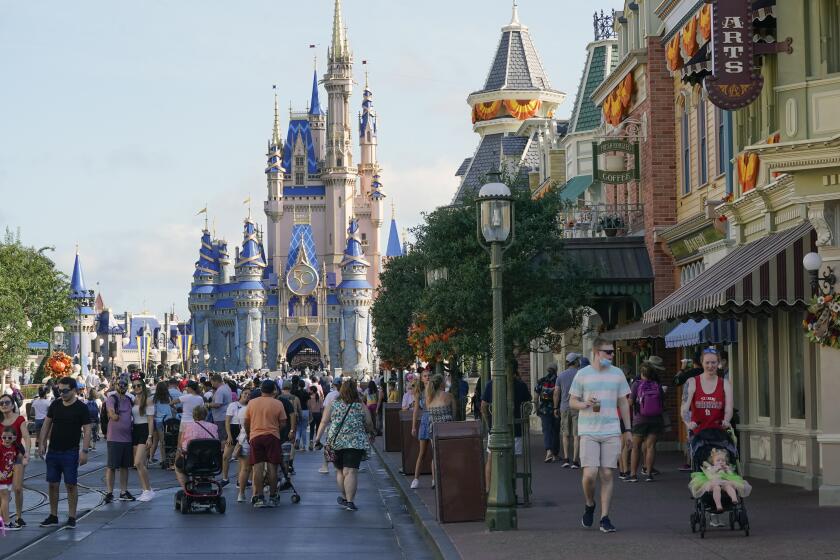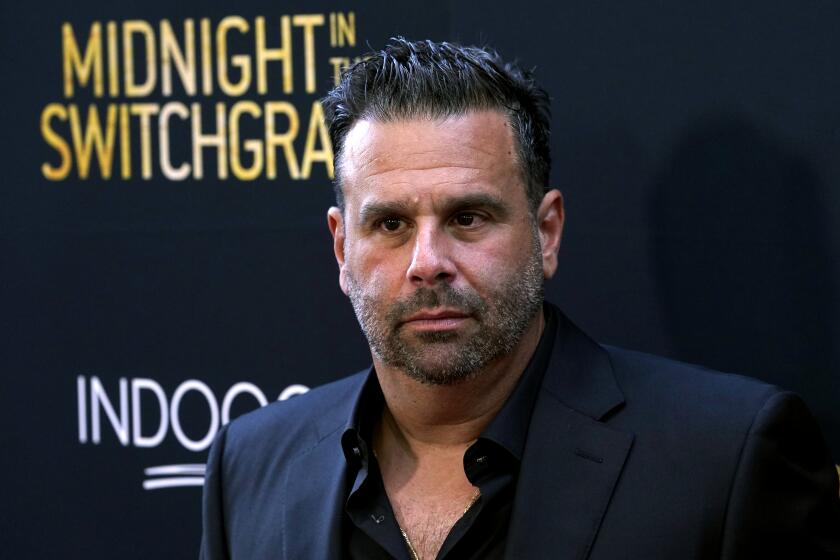‘Birds of Prey,’ spin-off of ‘Suicide Squad,’ to receive California tax credits
- Share via
Warner Bros.’ follow-up to its superhero movie “Suicide Squad” will film in California and has qualified for the state’s tax credit program. “Birds of Prey,” with Margot Robbie reprising her role as the wicked Harley Quinn, is the latest Hollywood blockbuster to take advantage of California’s incentive program, which is aiming to attract more big-budget movies to shoot locally.
The film has qualified for an estimated $12.6 million in tax credits, the most of the 19 movie titles receiving incentives in the most recent round. The largest tax credit awarded to a feature to date was Paramount’s upcoming “Transformers” spin-off movie “Bumblebee,” which qualified for $22.4 million in incentives in a previous round.
“Birds” is expected to spend nearly $63 million in-state on qualified expenditures, which don’t include star salaries and other above-the-line expenses. The movie is part of Warner Bros.’ DC Comics superhero universe, which includes “Suicide Squad,” which filmed primarily in Toronto. The 2016 movie grossed more than $746 million worldwide in cinemas.
The California Film Commission, which administers the incentive program, said Monday that the 19 movies receiving tax credits in the latest round — out of 43 film projects that applied — are expected to generate an estimated $258.2 million in qualified expenditures and spend a combined 602 shoot days across the state.
The productions are expected to employ a combined 869 cast, 2,357 crew members and 23,000 extras, the commission said.
Among the other titles that qualified in the round are : “The Has-Been,” another Warner Bros. production, which is expected to star Ben Affleck; “The Hunt,” a Universal thriller from Blumhouse Productions and written by “Lost” creators Damon Lindelof and Nick Cuse; and “Flying Horse,” a movie directed by and starring Gary Oldman as the pioneering British photographer Eadweard Muybridge.
“Everyone knows incentives are a critical part of the industry these days, as we all find ourselves seeking and comparing the best options available for each film,” Oldman said in a statement.
“Without the state’s tax credit program and support from the California Film Commission, the Governor and our lawmakers, it is a certainty that we would not be able to shoot this essential California story in California,” he said. “My colleagues and I are simply thrilled for the opportunity to bring this story home.”
The commission said more than half of the 19 titles will shoot outside the 30-mile radius around the Los Angeles area, which qualifies the productions for additional tax incentives.
California’s incentive program was recently extended by five years to 2025. The program allots $330 million annually to selected movie and TV shows that shoot primarily in-state.
The program allows filmmakers to recoup as much as 25% of their spending — up to the first $100 million — on crew salaries and other qualified costs, such as building sets. Star salaries and other so-called above-the-line compensation don’t count. Studios can then use the credits to offset state tax liabilities in California.
Twitter: @DavidNgLAT
More to Read
Inside the business of entertainment
The Wide Shot brings you news, analysis and insights on everything from streaming wars to production — and what it all means for the future.
You may occasionally receive promotional content from the Los Angeles Times.











